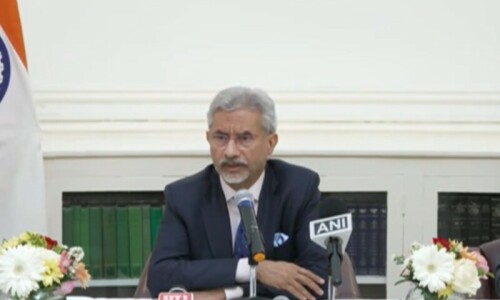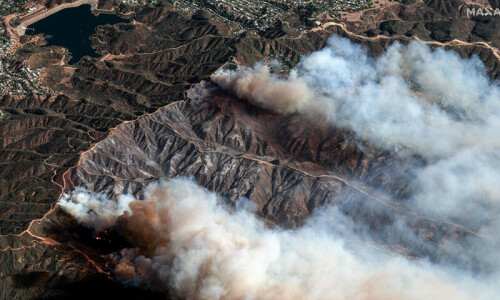A REPORT in this newspaper yesterday disclosed a new twist in the saga of how India has managed to earn carbon credits from a UN agency for two hydropower projects in Indian-held Kashmir without Pakistan raising an official objection despite having reservations on the projects. The twist: intelligence agencies raided the offices of at least two federal ministries, water and power, and environment, and seized documents in connection with the power projects. Unhappily, it appears that political paralysis and bureaucratic machinations have yet again provided the security establishment with an excuse to insert itself into the workings of the government. Several questions arise here. What legal authority do the security agencies have to seize documents from federal ministries? Or was it simply done under the carte blanche that the ‘national interest’ provides? The already woeful civil-military imbalance seems to have manifested itself once again in unfortunate and unnecessary circumstances. In the real world, where actors will seize whatever space is offered to them, perhaps the most pointed questions have to be reserved for the political government in the present instance. The issue of the Indian hydropower project is not new, dating back to the mid-2000s. It definitely appeared on the radar of the present government last July when the prime minister ordered an inquiry into how India was able to secure the UN carbon credits after a private citizen wrote to the prime minister to inform him of the issue. Then in late February this newspaper again reported that after months of procrastination three ministries — water and power, environment and foreign affairs — had begun inquiries, though it appeared to largely involve passing the blame from one ministry to the next. So by the time the intelligence agencies swung into action on Friday, the political government had nine months to ascertain the facts and affix responsibility for lapses or wrongdoing where necessary.
Quite simply, the civil-military imbalance will never be redressed unless the civilians improve their performance. Water is critical to the security of the country. Some experts believe that if the Chutak and Nimoo-Bazgoo projects by India are allowed to go unchallenged, it may affect Pakistan’s case on the much larger Kishanganga project. There may be many reasons why the two Indian projects slipped through the cracks of the Pakistani state, but at the very least the political government should have by now found answers to why exactly that happened. The intelligence agencies’ actions were distasteful and perhaps even exceeded their jurisdiction; but it’s pre-emptive and corrective measures that the country needs, not criticism that will be shrugged off by certain quarters.












































Dear visitor, the comments section is undergoing an overhaul and will return soon.